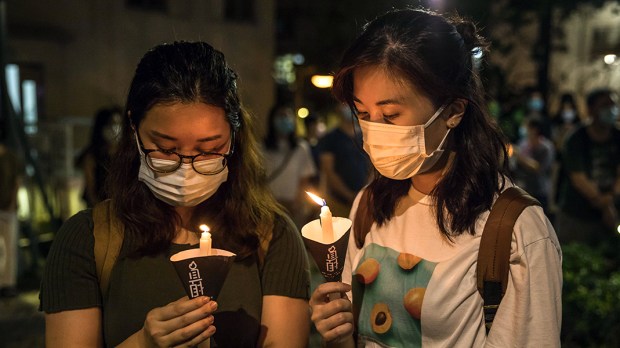Lenten Campaign 2025
This content is free of charge, as are all our articles.
Support us with a donation that is tax-deductible and enable us to continue to reach millions of readers.
As the People’s Republic of China imposed a national security law on its semi-autonomous territory of Hong Kong, the leader of the Catholic Church in the former British colony called for unity.
Writing in the newspaper of the Diocese of Hong Kong, Cardinal John Tong said his first priority is “to maintain unity in the Church.”
Cardinal Tong, who is the apostolic administrator of the territory and also the former bishop of Hong Kong, also expressed hope that the nation “can stand united,” Vatican News reported.
In an earlier interview, the cardinal expressed his belief that “the law on national security will not negatively impact on religious freedom.” He said that Article 32 of Hong Kong’s Basic Law — its constitution — guarantees freedom of religious belief and freedom to preach, conduct and participate in religious activities in public.
Tong added that the Church should still be able to participate in the nation’s “social affairs.” Article 141 of the Basic Law “stipulates that the local government shall not interfere in the internal affairs of religious organizations or restrict religious activities, and they may continue to run schools and social services,” he said.
Among other things, the new national security law criminalizes “colluding with foreign political forces.” Cardinal Tong alluded to this, saying that the relationship between the Diocese of Hong Kong and the Holy See “may be a concern for many people.” However, this “link” must “be viewed as an internal matter of the Catholic Church,” he said, rather than as a “collusion with foreign forces.”
Touching on the relationship between China itself and the Holy See, Cardinal Tong emphasized that “there have been friendly exchanges between China and the Holy See, and our Church focuses on the spiritual dimension and the pastoral care of parishioners.”
But Cardinal Charles Maung Bo, president of the Federation of Asian Bishops’ Conferences, worried that even if freedom of worship in Hong Kong is not directly or immediately affected, the new security law and its broad criminalization of “subversion,” “secession,” and “colluding with foreign political forces” could result, for example, in the monitoring of religious preaching, the criminalization of candlelit prayer vigils, and the harassment of places of worship that offer sanctuary or sustenance to protesters.
Cardinal Bo in a July 1 statement issued a call for prayer for Hong Kong.
“The government of China has last night imposed a new national security law for Hong Kong,” Cardinal Bo said. “This was done without systematic consultation with the general public. This law seriously diminishes Hong Kong’s freedoms and destroys the city’s ‘high degree of autonomy’ promised under the One Country, Two Systems principle. This action brings a most significant change to Hong Kong’s constitution and is offensive to the spirit and letter of the 1997 handover agreement.”

